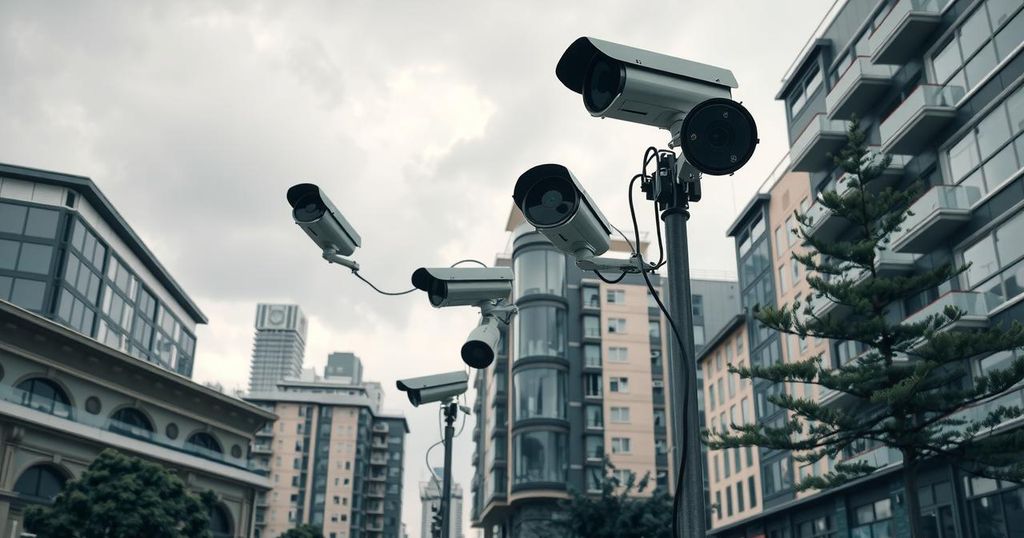London police plan to install the UK’s first permanent live facial recognition cameras in Croydon, aiming to enhance crime prevention efforts. The move follows successful deployments resulting in approximately 200 arrests last year. Privacy advocates raise concerns over regulation and potential misuse of data, emphasizing the need for legislative safeguards.
London police are set to install the UK’s first permanent live facial recognition cameras in Croydon, an area noted for frequent facial recognition deployments. Approximately 200 arrests were made in Croydon by November of last year, demonstrating the effectiveness of such technology in crime prevention. The Metropolitan Police may also consider expanding this surveillance network across London.
Scheduled for installation in June or July, the new cameras will be mounted on lampposts or buildings. Previously, police utilized mobile vans for facial recognition, but these units have been in high demand across the city, according to Mitch Carr, the superintendent for neighborhood policing in south London. He stated, “The end result will see cameras covering a defined area and will give us much more flexibility around the days and times we can run the operations.”
The live facial recognition system will function only when officers are nearby to act if a match occurs, and any non-matching data collected will be deleted immediately, as reported by The Times. However, privacy advocates, like Big Brother Watch, oppose this initiative, demanding legislation to secure facial recognition practices, especially following instances of misidentification.
The UK currently navigates a fragmented legal landscape concerning biometrics, lacking a cohesive regulatory framework. The Information Commissioner’s Office (ICO) has highlighted the lack of clear guidelines on police operations with live facial recognition. Furthermore, the biometrics commissioner noted concerns about police retaining images of innocents in their databases, aggravating privacy risks.
Critics of the technology have raised multiple concerns during parliamentary discussions organized by UK policing minister Diana Johnston. Nevertheless, Chris Philp, Conservative MP for Croydon South, supports the move, stating, “This technology has the potential to revolutionize crime fighting in the same way that fingerprints and DNA have in the past.”
London’s introduction of permanent live facial recognition cameras marks a significant shift in policing practices aimed at enhancing crime prevention. While proponents advocate for its crime-fighting potential, privacy groups and legal experts express serious concerns regarding the lack of regulation and potential misuse. Continuous discussions are essential to address and balance the needs for public safety with individual privacy rights.
Original Source: www.biometricupdate.com







